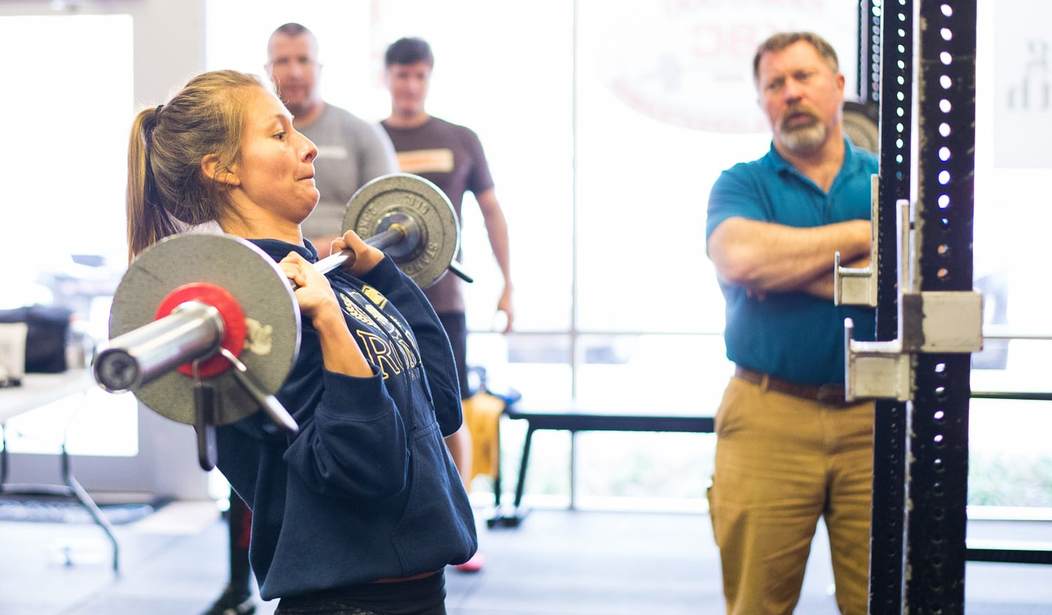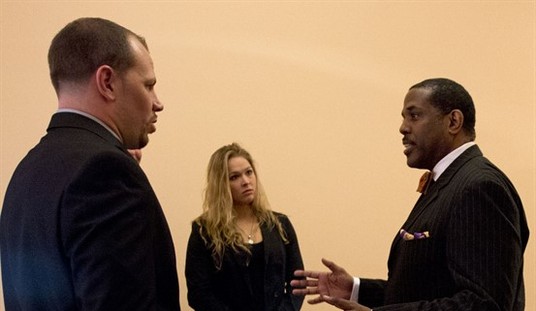When you walk into a gym, how do you know if the guy with “Trainer” or “Coach” on his shirt actually knows what he’s doing? As a member of the lay public, it may never even have occurred to you that there are differences in the level of experience and expertise among the people in these shirts. But it’s a very important question to ask, because the right answer makes the difference between wasted time and money and a productive experience — or between potential injury and the improvement you’re looking for.
A friend of mine from years back once told me that he didn’t think he was going to stay in this business because of the problems associated with this question.
And it is a problem: you can train for many years and accumulate decades of valuable experience, educate yourself in all the important science, and develop the communications skills necessary to effectively coach complicated movement patterns. The kid has a weekend “trainer/coaching” certification from any of a large number of certification mills, so he has a piece of paper in his office that says he’s “certified” to coach, or train clients, or whatever the piece of paper says he can do.
You are an expert on human movement under the barbell. He is a college kid with one year of experience setting pins on the leg extension machine, or maybe three months of making people hot, sweaty, and tired — and a piece of paper. How does a prospective client know the difference?
The American Sports and Fitness Association offers 26 different online certifications, none of which you pay for unless you pass — the most expensive certificate is $249, and most are $99. Although it’s not an online product, CrossFit allows you to open a CrossFit affiliate with the successful completion of their $1000 “Level I” weekend course.
Believe it or not, the kid at the GloboGym may have a bachelor’s degree in Exercise Science. They’re not very hard to get at most schools, and as a result there are lots of them awarded every year. With this degree, the graduate is qualified to work … at the GloboGym. And that’s about it. Any additional expertise and experience he obtains will have to happen on the job and through his own efforts.
The fact that the trainer at the GloboGym is only slightly more qualified than your prospective client is not obvious to the client. The industry deliberately blurs this distinction for obvious reasons: the club doesn’t want to charge less money for the less-qualified kid, because that adversely affects the net. And they can’t hire the most qualified coaches because they can’t make any money if they have to pay them what they’re worth.
The mainstream fitness industry subsists on membership dues and personal training fees. Enrollment fees and monthly dues pay the bills, and the club’s share of the personal training is the gravy. This can work because the mainstream fitness industry relies on machine-based exercise programs and, more recently, “boot-camp” calisthenics, not barbell-based strength training — it relies on low-quality exercise that can be administered by minimally qualified personnel.
We know why barbells are better. They involve more muscle mass and more joints operating over longer ranges of motion using heavier weights. The loads you can lift with them can increase over many years, and they involve balance, flexibility, and skill when they are performed correctly. Barbells make you stronger than machines, so they work better for strength training.
Barbells also involve a specific skill set in their coaching. A competent barbell coach knows how to solve the problems associated with weighted human movement — the mistakes commonly made, the problems with balance and asymmetrical knees and hips that are always encountered as people learn how to lift weights. A good coach made these mistakes himself, and that’s why personal experience under the bar is an important aspect of effective barbell coaching.
But machines are easier to use and easier to teach, as are calisthenics and boot-camp exercises. You just sit down, wiggle the pads around, and count to 10, or move really fast and hard until you’re hot, sweaty, and tired — which means that the people available to teach them are easier to find and cheaper to pay. Their experience has been obtained much more cheaply than a barbell coach’s has.
So the problem boils down to this: How do you find a trainer who is qualified to help you in a mainstream fitness industry club?
You probably can’t.
There are exceptions, of course, but people who start working for machine-based clubs and “boxes” who later outgrow that restrictive environment will leave for a better situation — a gym where they can practice what they have learned about training, where they can more effectively train their clients and themselves. They will probably open their own gym when they can.
A good trainer will be found in a good gym. A good gym is usually owned by an individual, not a corporation, because of the personal nature of this type of practice. A good gym will have good equipment: quality bars and plates, bumper plates for the “quick” lifts, useful racks for squats, presses, and bench presses, perhaps a decent rack of dumbbells for certain types of assistance work, and the obligatory chalk box that always accompanies a serious approach to strength training.
So, to revisit the question: How do you differentiate yourself from the “Trainer” at the GloboGym? First, don’t work in a GloboGym. Second, find a good gym or open your own place. And finally, do a good job of teaching movement under the barbell — word gets around in this business.
And for prospective clients: This year, when you finally decide to get serious and get some help with your strength training, do not fail to make the important distinction between qualified and unqualified coaching. Find a place that is more likely to employ the people you need — find a black-iron gym. GloboGym is not the kind of place where qualified strength trainers work.










Join the conversation as a VIP Member